Following several months of adaptation, on the 19th of January Google began to roll out changes it made in order to comply with DMA (Digital Markets Act) requirements; a roll-out that finished on the 7th of March.
NB: This is an article from mirai, one of our Expert Partners
Subscribe to our weekly newsletter and stay up to date
Just days after the first changes were implemented, we began to see how they influenced hotel campaigns in Google Hotel Ads. Three months on, results for hotels are still getting worse:
- Just over three months following implementation, click-through data has shown a 30% decrease in traffic volume in EU markets affected by DMA implementation compared to those markets where DMA has not been implemented.
- The graph below shows the Google Hotel Ads click differential between regions affected by the DMA vs. those not affected, revealing a click volume drop of 30%.
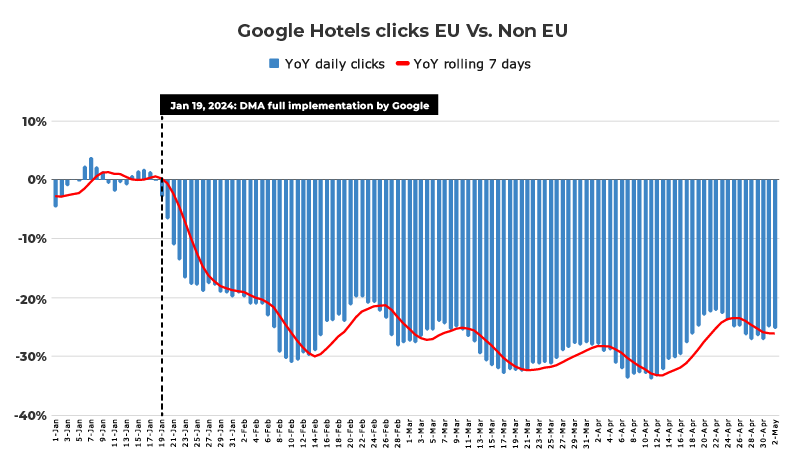
- The volume of direct bookings drops as much as 36%, increasing hotel dependence on intermediaries, which seriously damages their profitability.
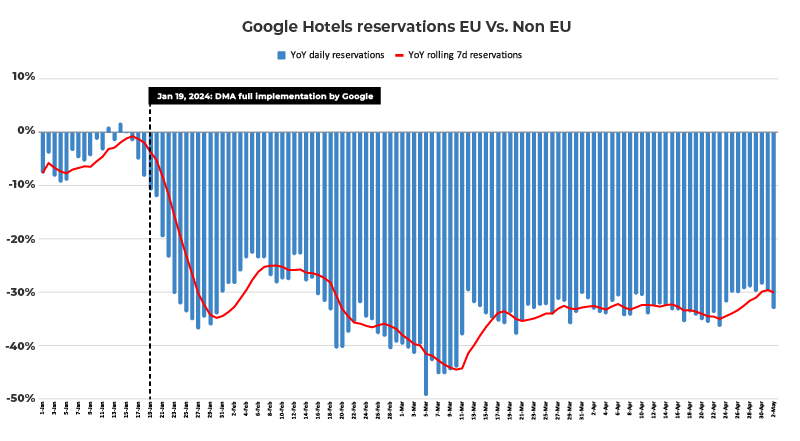
What has changed exactly?
Basically, Google has been obliged to alter its results scheme for travel searches (flights and hotels).
Here we will focus only on changes that have affected hotels.
BEFORE (and currently in non-DMA markets):
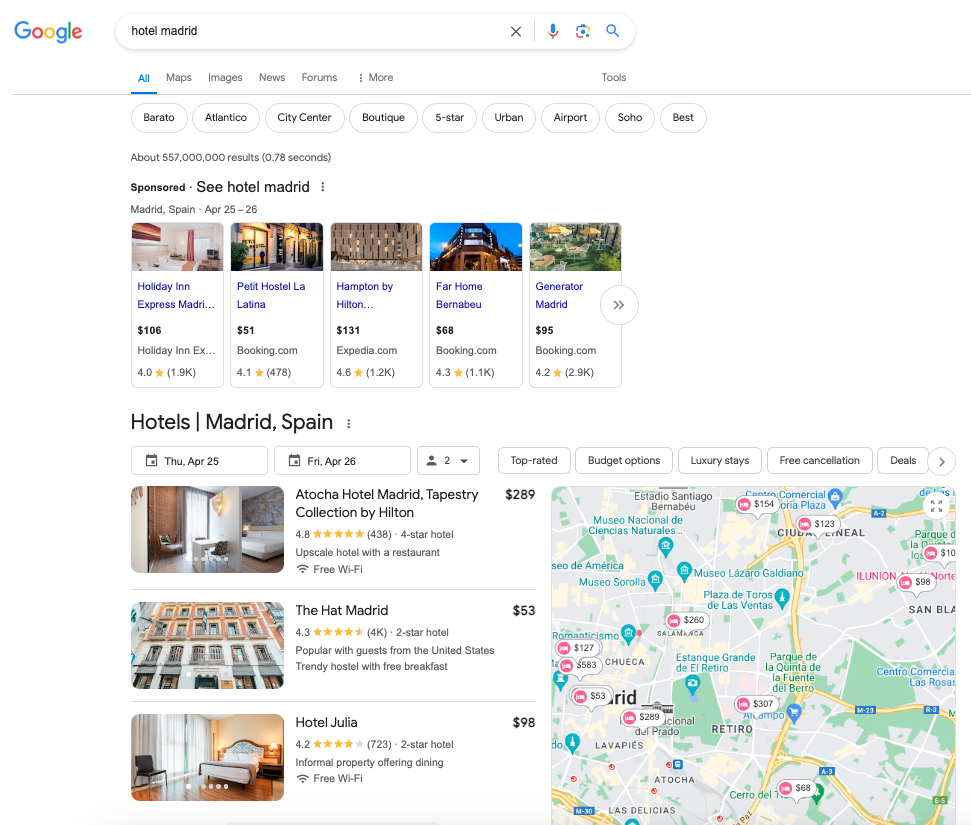
NOW (implemented in DMA markets):
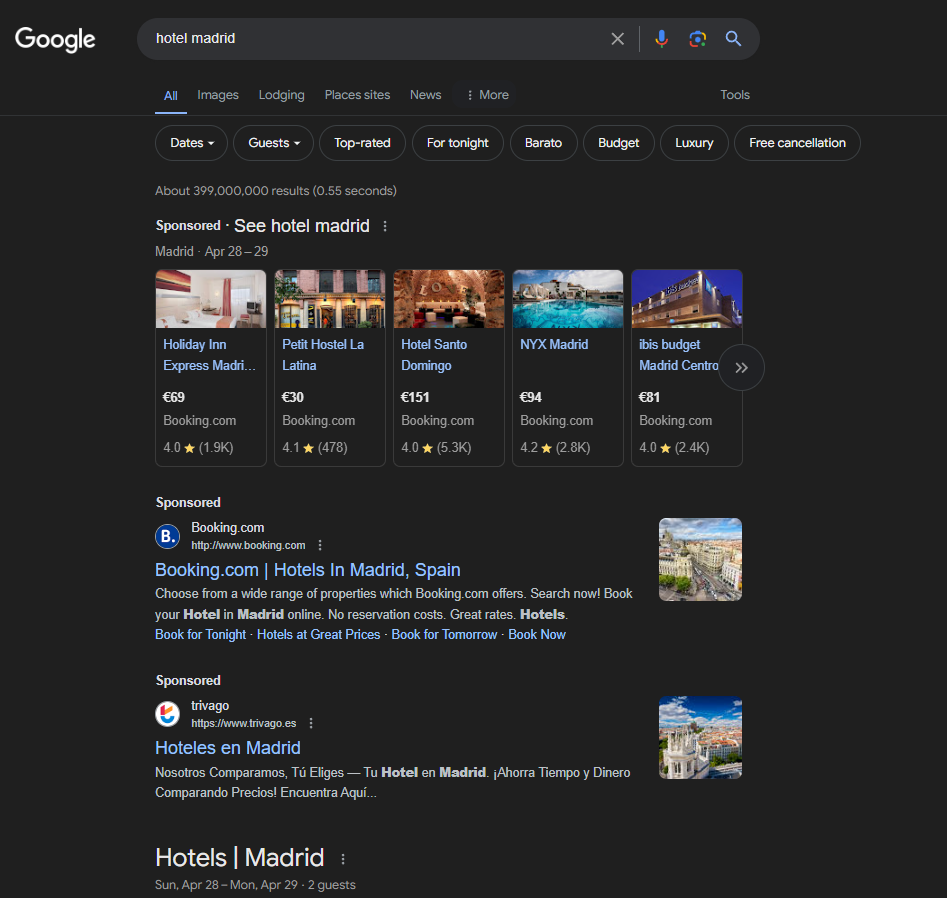
In July 2023, the European Union designated six digital companies as gatekeepers, Amazon, Apple, ByteDance (TikTok), Alphabet (Google), Meta (Facebook) and Microsoft (Windows), on the basis of the relevance of the 22 platforms operated by these companies.
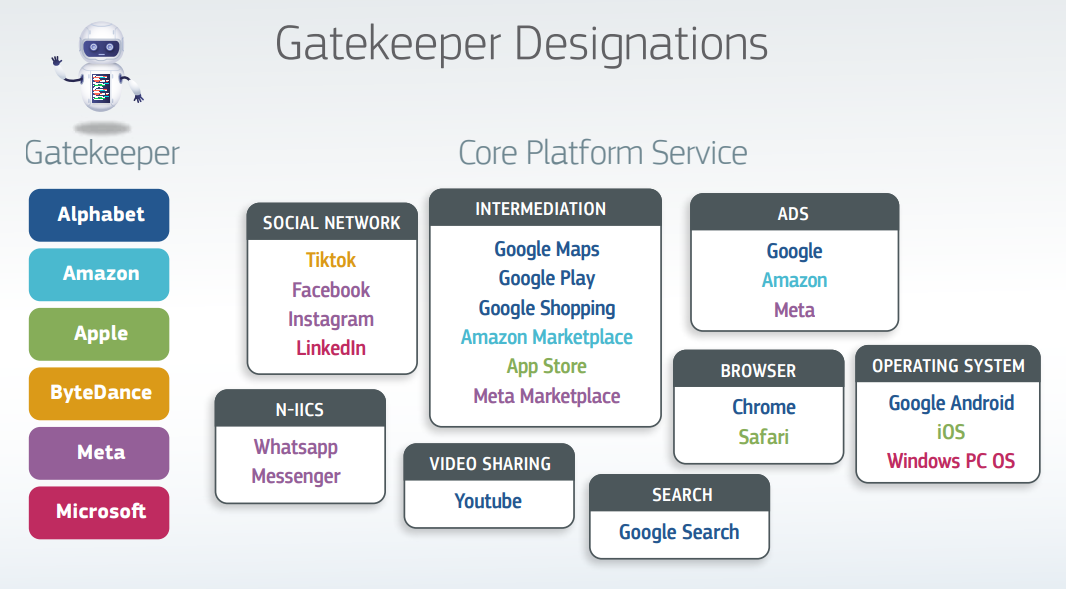
In the case of Google, the gatekeeper designation means it cannot include its own vertical services (Google Maps, Google Flights or Google Hotel Ads) in its search results pages (known as SERPs). The specific article in question is Article 6.5 of the DMA, which deals with ‘self-preferencing’.
Verbatim extraction from the DMA:
“The gatekeeper shall not treat more favourably, in ranking and related indexing and crawling, services and products offered by the gatekeeper itself than similar services or products of a third party. The gatekeeper shall apply transparent, fair and non-discriminatory conditions to such ranking“.
This means that presentation of hotel offers to users based in DMA markets is less organised, clear and intuitive.
Prior to DMA, Google’s taxonomy of results was the result of decades of effort by the company to refine its results in order to provide an optimized search experience that would connect supply and demand in a way that was ideal for both.
This pre-DMA search experience offered hotels participating directly in the Google Hotel Ads product, the option to present their inventory (availability and room rates) in a way that was both efficient from the standpoint of distribution cost, and enriched for the user, as it integrated the experience of other services, e.g. Google Maps. This way of presenting information was clear, relevant and intuitive, and maximized purchasing decisions such hotel bookings for those users who were so inclined.





